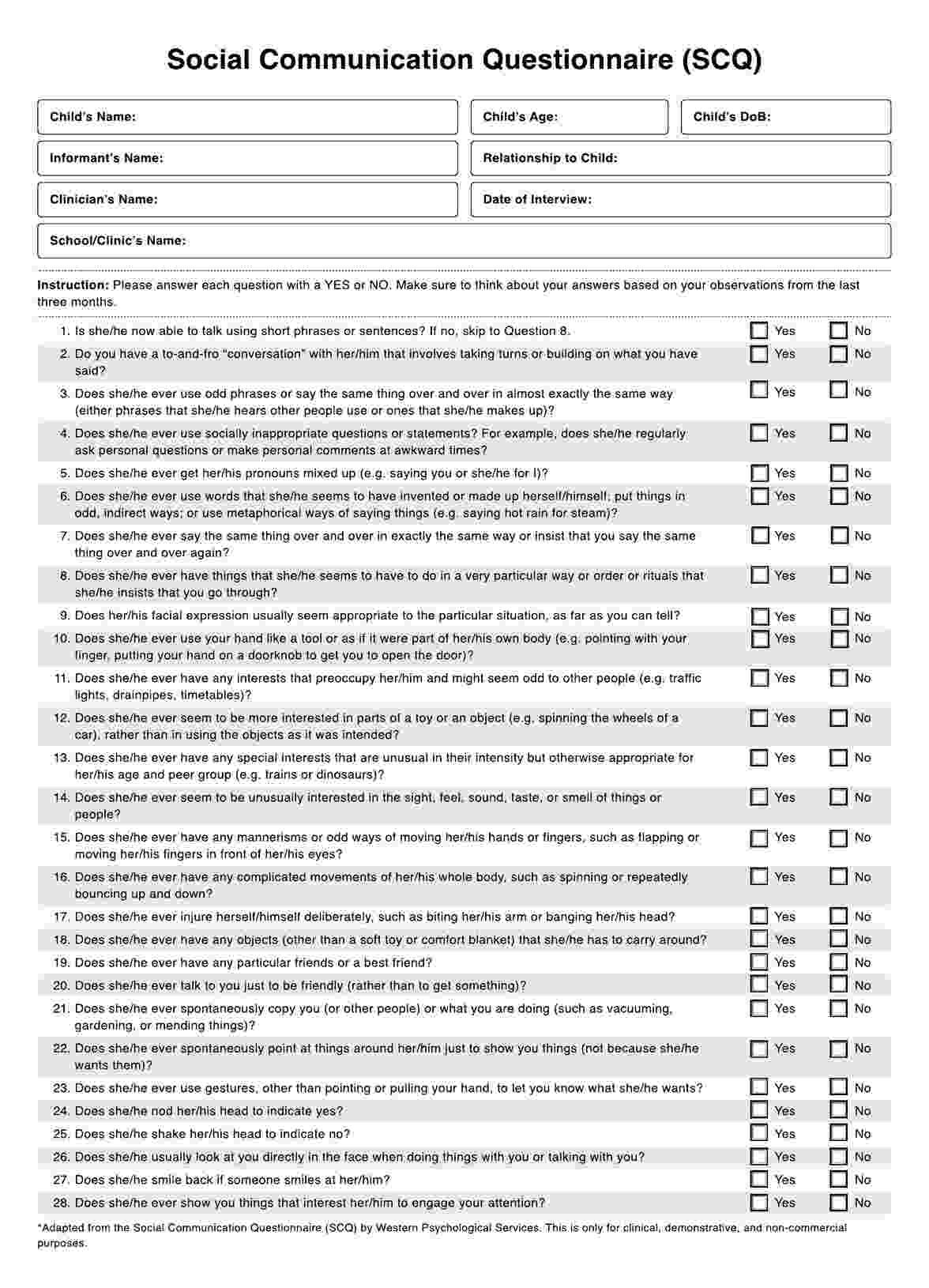No. The SCQ is a screening tool only used to gauge the child for possible ASD. If they score high, the recommended action is to have the child undergo a comprehensive examination (which involves other assessments) and an offical clinical diagnosis. This would need to be a complete diagnostic evaluation or autism diagnostic interview. Other developmental disorders can also be identified utilizing other screening questionnaires.

Social Communication Questionnaire
If you have a patient suspected of having Autism Spectrum Disorder, issue the Social Communication Questionnaire to gauge their communication and social skills, then determine what you can do based on the results.
Social Communication Questionnaire Template
Commonly asked questions
It may take 10-15 minutes since it has forty items. However, don’t be surprised if it takes longer. It might be because the informant gives each item enough thought before answering. If you decide to have them take copies of the SCQ home, it will obviously take more time. Just make sure to agree as to when they should submit it using specific cutoff points if you ever give copies for them to take home.
The child must be aged 4+. If the child is below 4 years of chronological age, then what you can use is the Social Communication Questionnaire for Toddlers, which is a different and separate questionnaire from this one. Using the right age range on questionnaires is important for a more complete evaluation as well as diagnostic validity later on.
EHR and practice management software
Get started for free
*No credit card required
Free
$0/usd
Unlimited clients
Telehealth
1GB of storage
Client portal text
Automated billing and online payments











